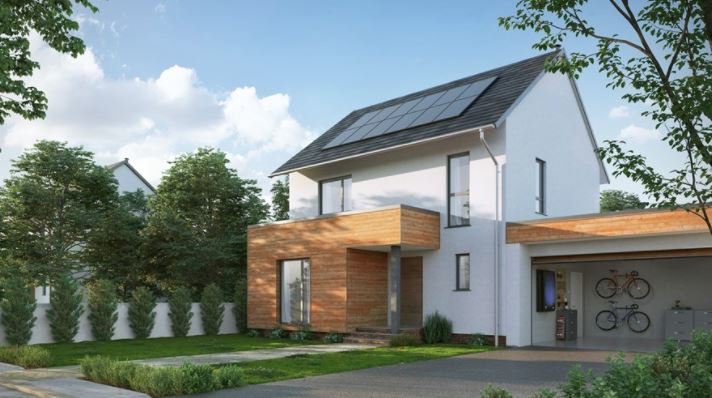The value of residential solar has been touted after new research revealed that the technology can boost the value of houses by over £30,000.
The research comes from EffectiveHome.co.uk, a website dedicated to providing information and guidance for homeowners regarding solar. It found that installing solar PV can increase house prices by an average of £32,459 across the UK.
Houses in London see the biggest increase, with the value jumping by £90,000. The country’s capital therefore has the largest increase in value of the ten largest cities in the UK, followed by Bristol (£45,142), Edinburgh (£40,095) and Leicester (£31,577).
The equity gains are also “significant”, according to the research, with £14,000 added to a £100,000 property, £70,000 added to a £500,000 property and £280,000 added to a £2 million property.
The value is created in the ability to save on energy bills – particularly as these have increased by 37% on average during lockdown – as well as the ability to sell surplus generation back to the grid.
“We hope our findings are a welcome surprise to property sellers across the UK who may be unaware that making energy efficient changes to their home, can make such a significant contribution to its valuation. There is a clear appetite amongst homebuyers to move to a property which is sensitive to spiralling energy prices, global warming and the environment we live,” Dan Graby, director at EffectiveHome.co.uk, said.
Installations of residential solar more than doubled in June 2020, with a 185% increase recorded compared with May. This came after an MCS survey in April that found that 90% of installers were being negatively impacted by COVID-19.
Residential solar also has a role to play in the new build market, with the government outlining in October its options for the Future Homes Standard. One of these included combining better fabric standards with carbon saving technology such as PV. However, the Committee on Climate Change (CCC) has criticsed the Future Homes Standard as “not going far enough”, particularly as it isn’t set to come in until 2025.



